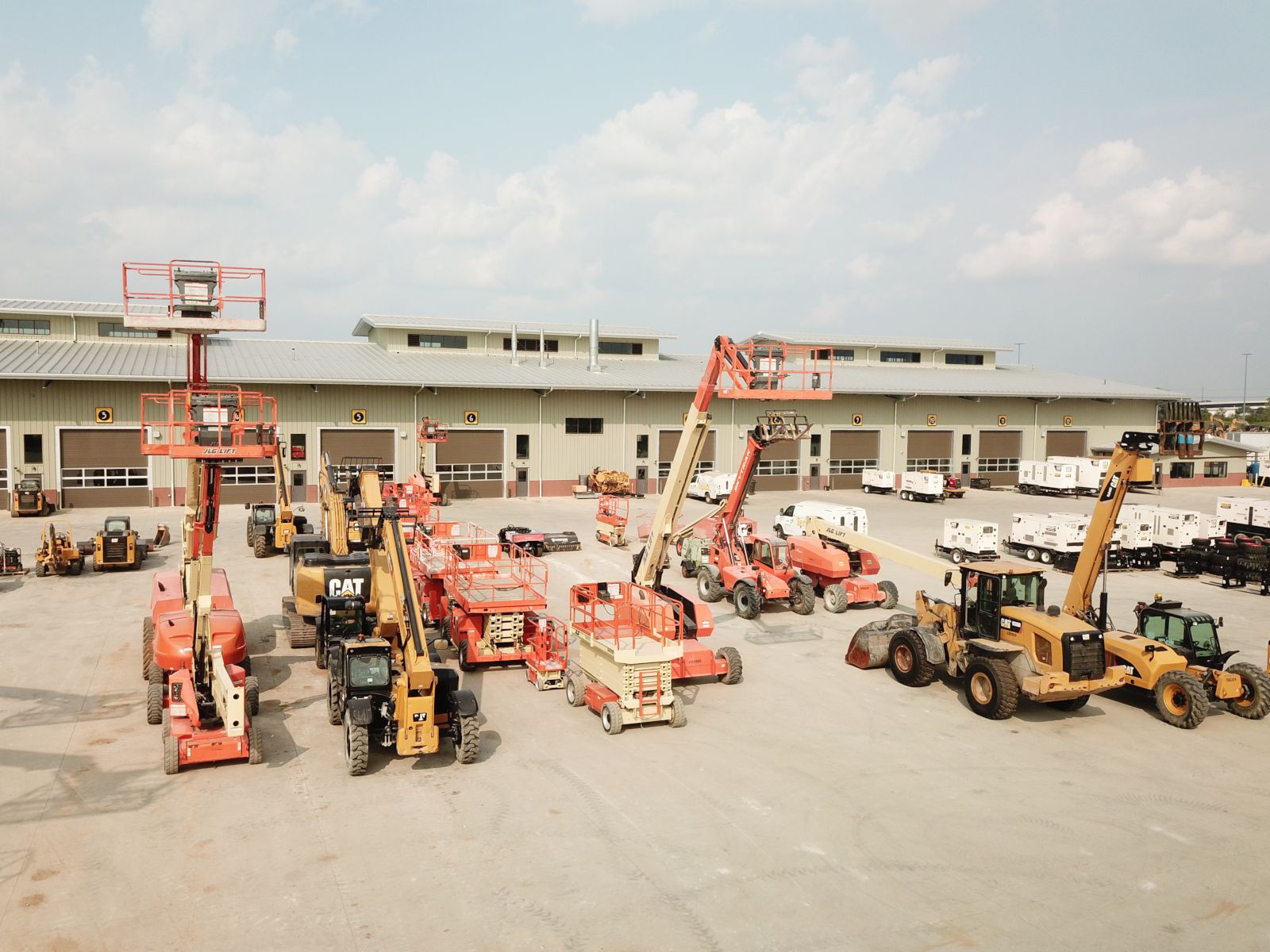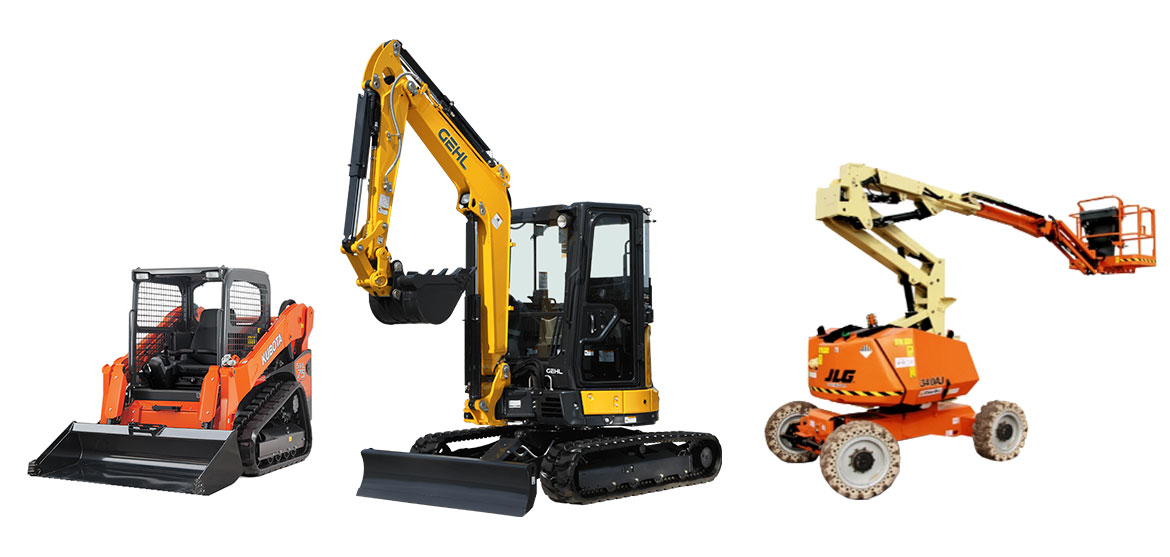Forklift Rental: Heavy Lifting Equipment for Warehousing and More
Forklift Rental: Heavy Lifting Equipment for Warehousing and More
Blog Article
Optimize Your Budget Plan by Understanding the Costs Related To Construction Equipment Services
Comprehending the complete extent of costs associated with building and construction equipment leasings is crucial for maximizing your budget plan. What approaches can be employed to efficiently handle these prices and make sure an extra effective rental experience?
Review of Rental Expenses
When considering construction equipment leasings, understanding the linked prices is paramount for effective budgeting and project planning. Rental expenses can differ dramatically based on several variables, consisting of equipment type, duration of leasing, and location. The first rental fee usually reflects the tools's market demand and its associated operational capabilities, influencing the overall expenditure.
In enhancement to the base rental price, ancillary prices might develop, such as transportation costs, gas additional charges, and maintenance fees. It is important to account for these extra expenditures to accurately evaluate the complete price of renting out devices. The rental period can impact pricing; longer rentals might qualify for discounted prices, while temporary rentals could sustain greater everyday costs.

Failure of Rental Rates
An extensive understanding of rental prices is vital for professionals and job managers intending to maximize their budget plans. Rental rates for construction equipment typically contain numerous components, consisting of base prices, time-based charges, and usage costs.
Base rates are the core fees connected with the service of the devices, often determined by the type and dimension of the machinery. These rates can differ substantially, influenced by variables such as tools need, schedule, and regional market trends. Time-based costs, which may be daily, weekly, or monthly, offer to fit different project timelines and rental periods.
Furthermore, rental prices may include usage costs, which are relevant when devices is utilized past a specified limit, ensuring that the rental firm can represent deterioration. Seasonal demand fluctuations can additionally influence rental prices, with peak construction periods typically regulating higher costs.
Moreover, comprehending the rental company's plans concerning upkeep and insurance can give further understanding right into the total expense framework. By analyzing these elements, specialists can make informed choices, ensuring the choice of rental tools aligns with both job requirements and spending plan constraints.
Extra Charges to Think About
Comprehending the ins and outs of additional charges is crucial for professionals to manage their general service expenditures effectively. Beyond the basic rental rates, various extra costs can dramatically influence the complete price of tools rental. These fees typically include shipment and pickup charges, which can differ based on distance and logistics associated with carrying the equipment to and from the work site.
Additionally, this contact form some rental firms might enforce fuel surcharges if the tools is returned with less fuel than when rented. It is also important to recognize possible cleaning fees, particularly for specialized equipment that calls for complete maintenance after usage.

Thoroughly assessing the rental contract and clarifying these added charges in advance can aid service providers prevent unexpected prices and guarantee that budgets continue to be intact throughout the task lifecycle.
Upkeep and Fixing Expenses
Normal repair and maintenance expenses are usually ignored factors that can substantially influence the general price of building and construction devices services. When renting tools, it is essential to think about not just the rental charges however likewise the potential expenses connected with maintaining the equipment in optimum operating problem.
Many rental firms consist of basic maintenance as component of the rental arrangement; however, more substantial fixings or unforeseen failures can bring about extra expenses. It's necessary to examine the rental contract meticulously click site to recognize what maintenance services are covered and what obligations drop on the occupant.
Moreover, equipment that is not well-maintained can result in ineffectiveness on duty website, possibly creating delays and enhancing project costs. To minimize these risks, it is recommended to conduct regular inspections and maintain open interaction with the rental supplier pertaining to any kind of concerns that develop during use.
Insurance and Obligation Expenses
Insurance and liability prices are essential parts that can dramatically affect the general expense of construction devices leasings (mini excavator rental). These expenses make certain that both the rental firm and the customer are secured from prospective financial losses emerging from mishaps, damage, or burglary during the rental duration

In addition, clients should recognize any deductibles or exclusions in the insurance coverage policy, as these can impact potential out-of-pocket costs. Recognizing the terms of any kind of insurance protection is vital to prevent unanticipated costs. Eventually, budgeting for insurance policy and responsibility costs can aid ensure a smoother rental experience and safeguard versus economic risks linked with building and construction jobs.
Verdict
In verdict, a thorough understanding of the prices linked with building devices leasings is important for effective spending plan management. Ultimately, notified decision-making regarding tools rentals contributes to the overall success of building undertakings.
Rental prices can vary significantly based on numerous variables, including tools type, period of leasing, and location (heavy equipment rental). The rental period can impact rates; longer services might qualify for affordable prices, while short-term services may sustain higher daily costs
By carrying out complete study and involving with trustworthy rental business, contractors can properly browse the intricacies of rental rates, ultimately optimizing their financial sources.
Past the typical rental rates, different helpful resources supplementary fees can dramatically influence the complete cost of devices service. Rental business typically give responsibility insurance policy that covers injuries to third parties or damage to building, while devices damage insurance can cover the expense of repairs or replacement if the rented equipment is harmed.
Report this page